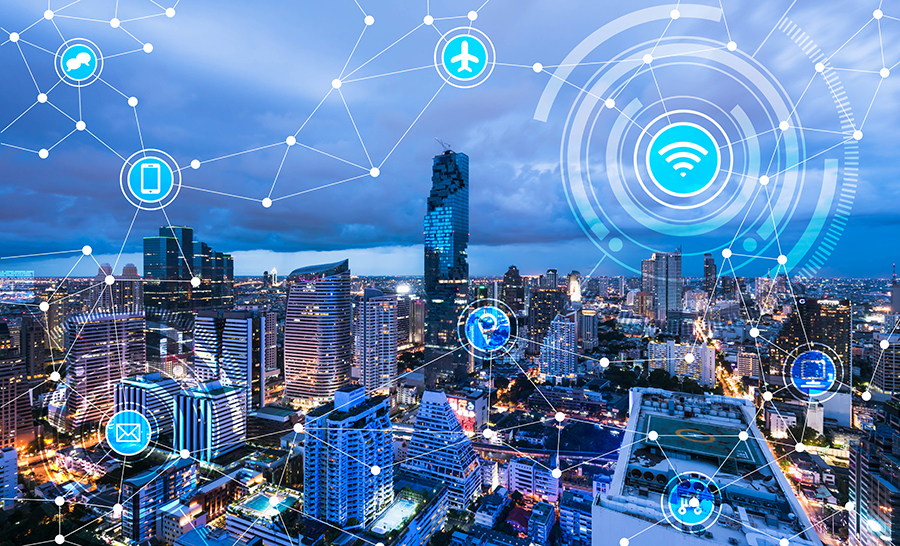In this article, you'll learn:
- What smart buildings are and how they enhance efficiency with technology.
- How smart buildings optimize operations and reduce costs for tenants.
- The benefits of reliable Wi-Fi and intuitive office design.
- How smart buildings improve security with advanced systems and IoT.
Smart buildings are rapidly becoming an excellent choice for corporate clients looking to lease space. Trending in both residential and commercial real estate, they are offering the perfect building solutions to corporate clients.
What Are Smart Buildings?
Smart buildings are technology-oriented buildings that provide technology solutions, reduce energy costs and consumption, and enhance efficiency. They have sensors built into their infrastructures, and the data obtained in smart buildings are used in enhancing the management of the buildings.
A smart building structure uses automated processes to control the building’s operations including ventilation, heating, lighting, air conditioning, and other systems.
How Smart Buildings Are Beneficial To Corporate Tenants
There are several benefits to leasing smart buildings. Here are five ways smart buildings can help corporate tenants who lease space within them.
1. Fully Integrated Systems
The introduction of the internet of things (IoT) ensures that there is a central solution for multiple building automation systems. For instance, corporate clients can get real-time data about the building without getting having to check multiple systems. This ensures you do not have to wait for an elevator or look for a coworker, for advanced IoT smart buildings allow us to have access to interactive data.
The global IoT market is projected to reach $1.7 trillion in 2019, growing by almost 20% year-on-year in the field of commercial real estate. One of the main purposes of IoT is to ensure faster communication and enable maximal automation of different processes.
2. Building Operations
Another major benefit of automated systems in smart buildings is that corporate clients can optimize building operations. For instance, corporate clients who lease smart buildings can create more comfortable environments, reduce energy expenses, and quickly rectify errors when they happen (or before they happen).
3. Quality WiFi
Smart buildings are Wi-Fi enabled. Therefore, corporate tenants can benefit from having access to high-quality, secure Wi-Fi throughout the building. As a result, smart buildings help to increase both mobility and productivity. Connecting every sensor and device (such as Mobile phones, tablets, laptops, computers, and other smart devices) in your workplace and then using big data techniques to analyze the information and gain smart insights into your business.
4. Intuitive Design
By utilizing the data from the IoT devices installed in a smart building, corporate tenants can redesign their office spaces to suit their businesses. For instance, energy wastage may be reduced by placing sensors above the entrance to the conference rooms or offices that are not often used.
5. Security
Security and safety rank high on the list of factors to be considered before leasing a corporate space. Smart buildings have a centralized application that consolidates alarms, notifications, and several other security systems without having to install many independent systems. Smart sensors, security devices, wireless audio systems, self-finding pallets, and RFID badges can all be part of an IoT system that makes up a smart building.
In conclusion, smart buildings are an excellent choice for corporate tenants who are looking to lease new space, gain smart insights into their businesses and optimize their business operations.
Here are a few other articles we think you'll enjoy:
What is Tenant Representation?
What is a Gross Lease in Commercial Real Estate?
What to Know About Rent Escalation Clauses
Want more CRE tips? Subscribe to our blog now!!







